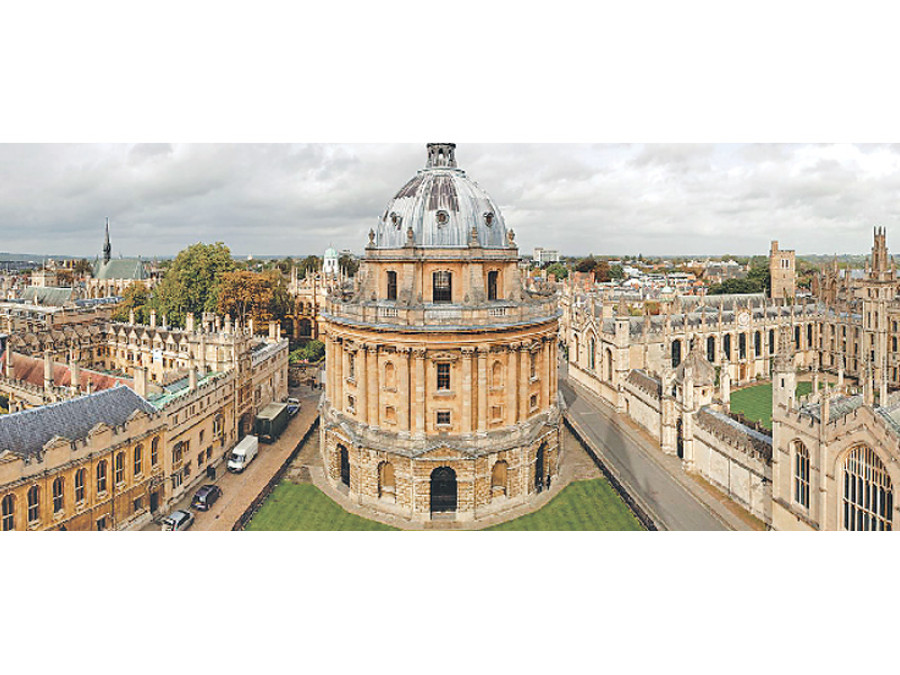Entertainment
Universities greater than the cities they lie in
A school is a boring and repetitive educational institute that students must attend every day; it is made tolerable only by the presence of friends.
Anuraag Lamichhane
A school is a boring and repetitive educational institute that students must attend every day; it is made tolerable only by the presence of friends. I don’t think I’m wrong in saying that this is what a majority of students feel about school. Perhaps we don’t appreciate school quite enough. There are many amongst us for whom attending school is a dream that will never be realised. Why do I mention this? Because I find myself in a situation where in a year my school life will end, only to be replaced by the hectic and bustling period that is university life.
When people think of universities, several names usually pop into their heads: Harvard, Oxford, Stanford, Cambridge, Berkeley. The list goes on. Studying in these universities is the ultimate wish for many aspiring students worldwide. How perfect it was then, in my case, that in the summer before my final school year my family and I were visiting the UK, one of my preferred university destinations. There are almost no universities better than or as renowned as Oxford and Cambridge both in the UK and worldwide. Given their close proximity to our primary location of visit, London, we planned to visit them both.
I had, in fact, been to the University of Oxford once before, when I was five. Admittedly, I don’t hold many memories from that particular visit but I do recall seeing a colossal ancient coffee-coloured building surrounded by an empty compound. This was the basis for how I pictured the university. However Oxford defied all my expectations. The university’s numerous colleges were sprawled almost randomly across the city like sprinkles on ice cream. I realised that the memories I had long held from my childhood were completely unreliable. The university was nothing like I had imagined. A simple drive through the city revealed a number of the university’s different colleges—the buildings themselves extremely ancient. Had I not known what they were, I would have assumed that they were protected medieval works of architecture. It would be safe to say many of the buildings looked like a collection of various pieces of museum architecture jumbled together. This is no surprise really because in fact, Oxford was founded in the Middle Ages—so old that its actual founding date is unknown. Estimates put the university at roughly 1000 years old and many of its buildings look
every bit their age, yet not with a negative connotation. Instead, they displayed the finer side of medieval architecture, refined over the years with renovations. The late morning sun glistened on the white stone and marble of the buildings sending a shiver up my spine as I marvelled at the sight of the antique structures in front of me. But there was little time and I had another university to gaze at.
There are probably few institutional rivalries as intense as that between Oxford and Cambridge. Ironically enough, the University of Cambridge was founded by scholars who left Oxford after a dispute with the townspeople. In a way, you could argue that the dispute is still ongoing!
The University of Cambridge was also similar to Oxford in that its colleges were widely spread out across the city. This was summed up perfectly by one stranger who when asked where the university was told us in a rather bored tone that it was ‘everywhere’, having probably been asked the question numerous times before. The University of Cambridge is also extremely old, having been founded in 1209. However, looking at some of the college buildings I would not have guessed that the university dates so far back in time—many of the buildings featured a relatively modern 1700s style of architecture with dominant structures laced with intricate designs and surrounded by huge columns, containing tall square-like windows and full of stark colour contrasts between bright sparkling white and dark.
Cambridge is far more than just a university and its influence spreads far and wide. This can be seen in its accomplished list of alumni—which includes 90 Nobel prize winners and a list of renowned names including illustrious scientists Charles Darwin, Stephen Hawking and Isaac Newton, and John Harvard, who went on to find Harvard University. It is clear that Cambridge students have had a tremendous impact on human development in the sciences, maths and politics and a number of other fields. Not to be undone Oxford of course has its own more than impressive list of alumni including 26 British Prime Ministers (including Margaret Thatcher), renowned economist Adam Smith, Albert Einstein who is probably the most famous scientist ever, author of the Lord of the Rings JRR Tolkien and 30 foreign leaders including former Indian Prime Minister Indira Gandhi, all which simply reiterate why people consider Oxford one of the finest centres of education, if not the finest.
The fact that both these universities have been around for the best part of a millennium proves their timeless class. Nearly a thousand years and they are still revered as the zenith of educational institutes. Oxford and Cambridge are a class apart in terms of longevity and the quality of education provided. The biggest compliment I can pay to these two universities is that if one is not the best out there at a moment of time, then the other almost certainly is.
Lamichhane is a grade 12 student at International School of Frankfurt




 8.12°C Kathmandu
8.12°C Kathmandu










